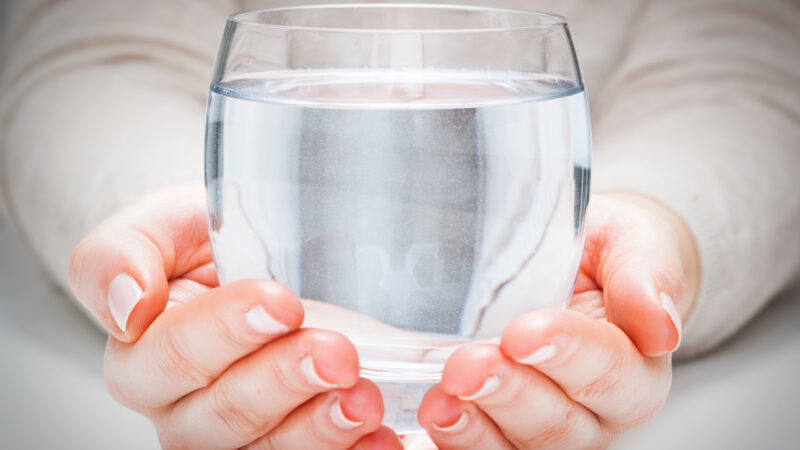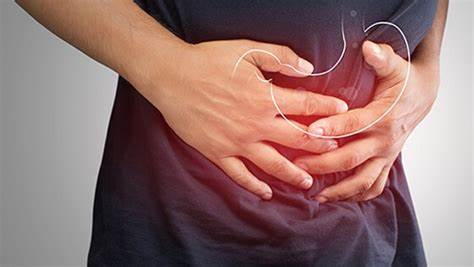Natural Healing – The Power of Water to Heal

Natural healing – the power of water to heal is often underestimated. When your water intake decreases, histamine—a chemical compound found in every cell—activates the body’s internal water regulation system. This system ensures that limited water is prioritized for the most vital organs, such as the brain, heart, and lungs. Understanding how proper hydration supports these processes reveals just how powerful water can be in promoting natural healing.
The Body’s Water Regulation at Different Life Stages
Water needs and regulation change over a lifetime. These stages include:
- Before Birth
- Between Birth and Adulthood
- Adulthood
Before Birth
An unborn baby can signal its mother when it requires more water for growth and development. This is believed to be linked to the morning sickness experienced in the early months of pregnancy, as a sign that the fetus needs more water.
Around Age 20
The body’s ability to regulate water peaks at about age 20. After this, it gradually declines. As a result, the sensation of thirst becomes weaker as we age.
Older Age
This may explain why chronic illnesses like arthritis and high blood pressure, which are also linked to inadequate water intake, are more common among the elderly. Regular consumption of beverages like tea, coffee, alcohol, and soft drinks may further disrupt water regulation in later life.
Why Water Is Crucial for Maintaining Normal Health
Proper water distribution throughout the body ensures essential organs receive vital nutrients and hormones. Here’s how water helps:
- Maintains moisture in the lining of internal organs
- Keeps the blood and lymph fluid at the proper consistency
- Regulates body temperature
- Removes toxins and waste through urine, sweat, and respiration
- Supports healthy skin structure and function
Every day, the body loses approximately four liters of water. Therefore, it’s necessary to replenish this amount daily by drinking at least an equivalent volume. Failure to do so may lead to dehydration.
Key Functions of Water in the Body
Water plays a vital role in multiple physiological functions, including:
- Generating Energy:
Water movement inside and outside of cells helps produce and store energy alongside other chemical energy sources. - Nerve Impulse Transmission:
Water-generated energy aids in transmitting electrical signals along nerves. - Cell Structure Support:
Water assists in forming glue-like substances that hold cell wall components together. - Chemical Transport from the Brain:
Brain-produced chemicals travel via water channels along nerves to deliver signals throughout the body. - Protein & Enzyme Functionality:
The presence of water affects how proteins and enzymes operate within the body.
What Is Dehydration?
Dehydration refers to extreme water loss from the body, leading to imbalances in sodium, potassium, and chloride levels. It can result from fever, diarrhea, vomiting, or excessive sweating.
Common Symptoms of Dehydration:
- Increased thirst
- Dry, inelastic skin
- Reduced urine output
- Irritability and confusion
How to Recognize Dehydration
While thirst is an early indicator, certain parts of the body might not receive adequate water without triggering thirst.
Specific Signs of Water Deficiency:
- Abdominal pain after meals
- Chronic allergies
- Chest pain
- Joint pain
- Headaches
- Lower back pain
What Is Dyspepsia?
Dyspepsia is a general term for upper abdominal discomfort that occurs after eating. This discomfort may manifest as:
- Fullness
- Indigestion
- Bloating
- Nausea
Dyspepsia is not a disease but a symptom of underlying conditions like stomach ulcers, gallbladder disease, or appendicitis.
Why Inadequate Water Intake Can Cause Dyspepsia
Two Primary Causes of Dyspepsia:
- Increased Stomach Acid
- Changes in Pancreatic Function
1. Increased Stomach Acid
The mucus lining of the stomach wall is composed of 98% water and 2% supportive structure. If water content is insufficient, acid comes into direct contact with the stomach lining, causing pain.
2. Pancreatic Function Disruption
The pancreas, located behind the stomach, not only produces insulin to regulate blood sugar but also releases crucial digestive enzymes. Without adequate hydration, its performance can decline, affecting the entire digestive process.
Berikut adalah versi lengkap artikel Anda dalam bahasa Inggris, sudah disusun dengan struktur H2 dan H3 yang sesuai untuk WordPress atau SEO-friendly formatting:
How Does Drinking More Water Prevent Dyspepsia?

DYSPEPSIA (INDIGESTION): Natural Healing – The Power of Water to Heal
When you drink a glass of water, especially on an empty stomach, the water immediately enters the intestines and is absorbed into the body. After about an hour and a half, the absorbed water is secreted back into the stomach through its inner lining. This process helps remove deposits while keeping the protective water layer intact.
As a result, stomach acid cannot penetrate that layer and cause dyspepsia. That’s why natural healing practices recommend drinking water at least one hour before meals.
You can heal gastritis and heartburn simply by increasing your water intake to about two and a half liters per day.
What Is the Role of Medication in Dyspepsia?
Drugs such as Ranitidine or Cimetidine, which are commonly prescribed to control dyspepsia, are very effective in the short term. However, long-term use may be harmful.
Histamine and Water Regulation
One of the essential functions of histamine is regulating water within the body’s cells. When the action of histamine in certain cells is blocked, it can result in dehydration of those cells.
Water Deficiency and Common Health Problems
Joint Pain
Some medical experts believe joint pain can be an early indicator of water deficiency in the joints. When cartilage lacks water, lubrication is reduced, causing an increase in dead cells. Pain arises when the number of dead cells exceeds the number of newly generated cells.
Lower Back Pain
Lack of water in the spine may cause lower back pain. Drinking more water not only maintains hydration in spinal joints but also enhances the efficiency of spinal disc function.
Stress and Depression
Water deficiency in the brain can lead to depression. The brain generates electrical energy from its water content. When dehydrated, the brain produces less energy, impairing its functions. This inefficiency can trigger emotional disorders like depression.
How Stress Affects Water Regulation
Any form of stress triggers hormone production. These hormones remain elevated until the stress subsides. Chronic stress without adequate hydration can severely affect the body’s fluid balance.
What Is the Effect of Alcohol on Water Regulation?
Alcohol has negative effects on water regulation for two key reasons:
1. Suppression of Vasopressin
Alcohol inhibits the release of vasopressin from the pituitary gland. Reduced vasopressin disrupts the body’s ability to regulate water balance.
2. Chronic Dehydration
Regular consumption of alcohol or caffeine (found in coffee, soda, etc.) can cause chronic dehydration in several organs. When nerves require more water, blood circulation increases along them, prompting histamine release from nearby cells.
How Water Deficiency Affects Other Health Conditions
High Blood Pressure
When the body lacks water in certain areas, it compensates by drawing:
- 66% of the water in the cells
- 26% from extracellular fluid
- 8% of the blood volume
This reduction in blood volume can increase blood pressure. Drinking adequate water can delay or reduce the severity of hypertension.
Obesity
Drinking water before meals helps reduce thirst-driven overeating. When water is insufficient, people often mistake thirst for hunger and overeat. This excess energy is stored as fat, while water-based energy can be easily excreted as urine, reducing the risk of weight gain.
Asthma and Allergies
Asthma causes repeated attacks of breathing difficulty, wheezing, and mucus buildup. The body responds to dehydration by narrowing airways to reduce water loss—a defense mechanism. Drinking about 10 glasses of water per day may help reduce asthma symptoms over time.
Daily Water Requirements
Measuring the exact water needs of each person is complex. Water requirements vary based on:
- Age
- Climate
- Season
- Physical activity
- Food intake
- Spice levels
- Salt consumption
- Water content in food
Health experts generally recommend drinking 8–10 glasses of water daily. One useful indicator of hydration is urine color:
- Clear or nearly white urine: The body is well-hydrated
- Yellow urine: Kidneys are working harder due to insufficient water
The Proper Way to Drink Water
Many people drink water in large gulps, but natural healing practices advise to “eat liquids and drink solids.” This means:
- Sip water slowly
- Mix it with saliva by “chewing” it in your mouth
- Avoid using straws regularly
Can Other Drinks Replace Water?
No. Beverages like tea, coffee, soda, or alcohol are not proper substitutes for water. While they contain water, they also have compounds that promote dehydration. These drinks increase the body’s need to eliminate not only their fluids but also some of the stored body water. Regular intake may reduce your natural thirst for water.
What Type of Water Is Best for Drinking?
Natural healing recommends pure water without added minerals. Artificially mineralized water might be rejected or stored in parts of the body, leading to health issues.
However, mineral-rich water from natural sources can be beneficial when its composition complements dietary minerals.
Does Water Temperature Matter?
Yes, the temperature of drinking water plays a role in health.
Benefits of Cold Water (from natural sources)
- Lowers body temperature
- Reduces blood viscosity
- Promotes toxin elimination through the skin
- Stimulates kidney function and urine output
- Improves bowel movement
- Supports softer stool formation
Benefits of Warm Water
- Helps prevent stomach disorders
- Cleanses the digestive tract
- Alleviates heartburn, belching, bloating, indigestion, vomiting, and stomach cramps

Comments are closed.